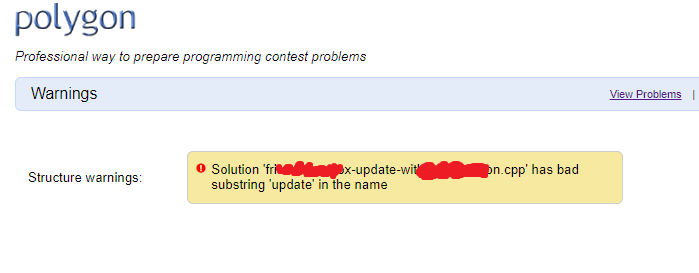In Polygon, when I name my solution file with substring “update”, it warned me of the “bad substring”. What does it mean? Why is it “bad”?

Another earlier blog about the same issue was posted here: Weird naming limitations for checkers in Polygon, but there is no answer.












